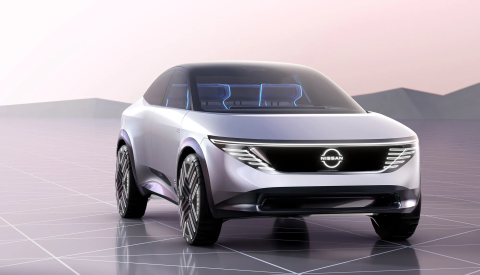Nissan to export made-in-China EVs globally to compete with Tesla & BYD
As the world is witnessing a remarkable surge in adoption of electric vehicles (EVs), Japanese automaker Nissan is trying to strategically position itself to better compete with industry giants like Tesla and BYD. In the dynamic landscape of EVs, Nissan is going to make a bold move by exporting made-in-China EVs to markets worldwide. This strategic move aims not only to tap into production efficiency of China but also to decrease costs and meet the escalating demand for EVs.
The Japanese automotive manufacturer is forging a significant collaboration with Tsinghua University, which is one of Beijing's premier academic institutions, to boost its presence in the world of EVs. This collaboration is aligned with the automaker’s commitment to operate "in China, for China and the world." Together, Nissan and Tsinghua University will set up a joint research center next year. The collaborative effort points to the company’s commitment to innovation as well as to stay ahead of its rivals in the fast-evolving automotive landscape.
The focus of this collaboration extends beyond production as it delves into capturing the attention of young consumers, particularly the Generation Z. Recognizing the importance of market trends and consumer preferences, the automaker aims to position itself as an attractive choice for the next generation of car purchasers. The collaboration also includes strategic initiatives in the development of EV infrastructure, covering aspects like expanding charging stations, implementing battery recycling programs, and enhancing energy management systems.
Makoto Uchida, the Chief executive Officer (CEO) of Nissan, expressed optimism about the collaboration, emphasizing its potential to expand the company’s understanding of the Chinese car market. This insight is seen as a critical element in tailoring EV offerings to meet the diverse needs of consumers. The partnership is not just about exporting vehicles; it is about developing a sustainable and mutually beneficial relationship fostering innovation and addressing the unique challenges of the Chinese and global EV markets.
Speaking on the topic, CEO Uchida said, “We hope that this collaboration will help us gain a deeper understanding of the Chinese market.”
The top executive went on to state that the collaboration will help Nissan in better meeting the needs of EV buyers in China as well as other markets of the world.
The timing of the aforementioned strategic move aligns with Nissan's continuing efforts to ramp up production of its second global EV, called the Nissan Ariya. Despite initial disruptions caused by Covid-19 pandemic and the global chip shortage, the automaker’s so-called Intelligent Factory is now operating at full capacity.
